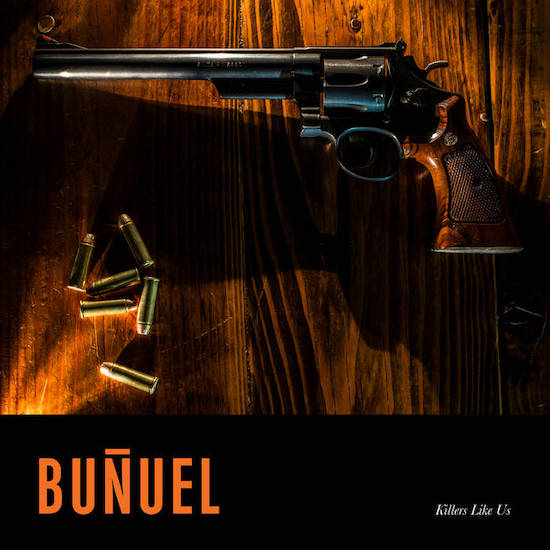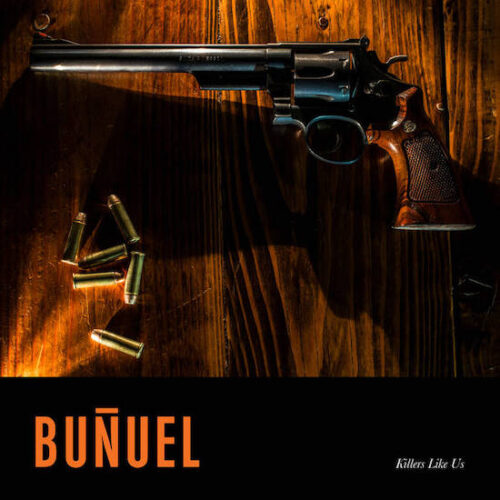Remember when noise rock felt like it meant you actual harm? Killers Like Us is dark and intense. Heavy as lead but quick on its feet, plunging your face into a cold world of sin and retribution. All the dark angels crowding around.
Buñuel are a team of Italian underground veterans fronted by the formidable Eugene Robinson of Oxbow. They play tough and inventive noise rock rooted in its 80s/90s origins. Sure, they share a singer and roughly the same musical universe as Oxbow but The Jesus Lizard, Helmet, early Rollins and the like are probably better pointers for your rock band shorthand. Things are at stake here, nostalgia isn’t part of the deal, their music is vibrant and committed. Completing a trilogy of sorts, this is their third album but if they’ve flown under your radar so far you’re not alone. The first two came out on Italian label La Tempesta but with Profound Lore now handling the rest of the world and the band looking to tour more widely (coming to Supersonic this year) they’re going to be demanding a lot more people’s attention.
How we got here, I’m not sure. Killers Like Us is a tragedy, opening with a death. ‘Hornets’ is a chilling mix of sinister and vulnerable, the narrator shakily stepping into Death’s big boots and trying to own it while blood pools on the road, soaking through everything, staining the world. ‘When God Used A Rope’ roars out and sweeps you along, wild energy riding a charged beat. Recent single ‘Crack Shot’ sees Robinson joined by his wife Kasia (Maneki Nekro) whose keening melody line brings an oddly pop edge to its furious assault. At least until the weird chainsaw grind agony of the ending.
On the lyric sheet Robinson’s words are compact, a killer couple’s descent into purgatory painted in snatches of internal monologue. A clean, ordered, outline of a dirty, chaotic, world. They may be carefully chosen but he tears into them with relish, chewing over words and phrases, inhabiting his lines, making you feel it, burning in the flames. As much as the band can tear it up, the second half brings a couple of longer droning hellscapes that twist the knife. In the nightmare of ‘When We Talk’ he confronts his fate, settling at last on a manic mantra of “You Have Offended the Gods”. It’s a lightless and unforgiving journey. The long woe of closer ‘Even the Jungle’ finds Robinson calmer but broken, haunted by the devil and death. In case anything was unclear he spells out what’s been happening here is “considering the ramifications of what exactly it is that happens when a good man turns bad.”



